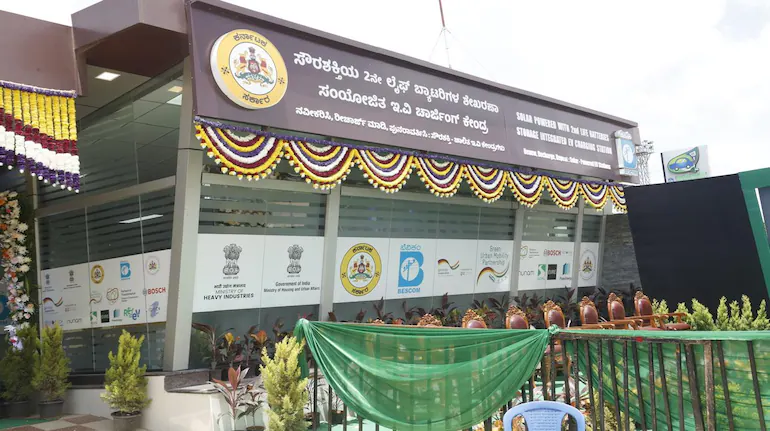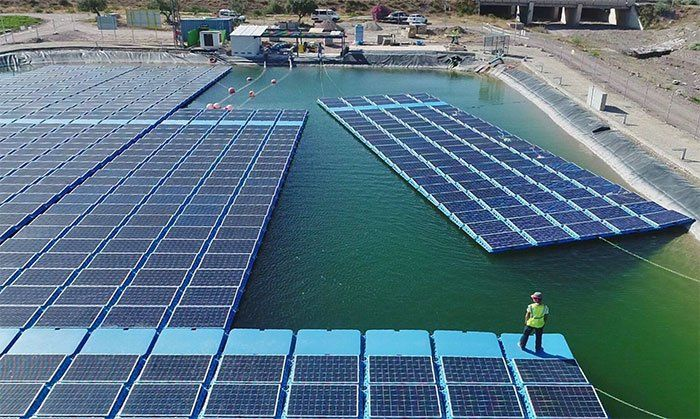Karnataka Launches India's First 24/7 solar EV charging station using second-life batteries.
Bengaluru, June 2, 2025: India has taken a progressive step in its clean energy journey by launching the country's first 24/7 solar EV charging station with second-life battery usage today. The charging station, which was inaugurated at the Kompegowda International Airport site near Bengaluru, was developed as a joint project by BESCOM (Bangalore Electricity Supply Company), GIZ (the German Agency for International Cooperation) and Nunam, a social enterprise operating in the area of sustainable energy solutions.
This project is poised to transform electric vehicle charging through its sustainable capacity. The 24/7 solar EV charging station will provide round-the-clock solar EV charging to consumers with second-life lithium-ion batteries repurposed from electric vehicle packs. Used batteries can store solar energy during the day and power EV charging through the night.
Technical Highlights of the Project
The solar EV charging station in Bengaluru has a solar panel capacity of 25 kWp, which produces clean energy daily. This is stored in a battery bank used for second-life battery capacity that has a total capacity of 100 kWh.
The charging system is linked to the BESCOM power grid, which allows for bi-directional grid flow. If the level of solar production is higher than the demand for charging, the excess will be fed back in to the grid.
It is a Working Model for Sustainability and Innovation
“This project proves that clean mobility can co-exist with sustainable energy,” said a BESCOM spokesperson. “Second-life batteries generate not only less electronic waste, but they also ensure more affordable solar-powered EV infrastructure.”
Nunam, the startup working on the battery reuse system also pointed out the circular economy impact of the program. “Second-life battery EV charging solutions are the future. Through the second-life process of EV batteries, we can drive down carbon footprints and expand access to green energy,” said Nunam's co-founder.
GIZ, a key knowledge and funding partner, remarked on the international applicability of this pilot. “This is a scalable model. It demonstrates that public utilities, private innovation, and international collaboration can together drive green infrastructure,” said a GIZ energy expert at the launch event.
Promoting Clean Mobility in India
As the EV adoption rate rises steadily across India, particularly in urban centres, including Bengaluru, it is critically important to develop clean and reliable charging infrastructure. This solar EV charging station, close to Bengaluru Airport, addresses the gaps in renewable energy, returns batteries into a circular economy, while integrating smart grid and other innovative technologies.
For residents and travelers in Bengaluru, this station means faster, cleaner and more sustainable EV charging - a key enabler for India's electric mobility transformation.
Looking Ahead
With this successful station, further solar EV charging stations can also be expected across Bengaluru and other cities in India. In addition, with the maturing of battery recycling and reuse technologies in India, India also has the ability to be a leader in second-life batteries for electric vehicle charging.



